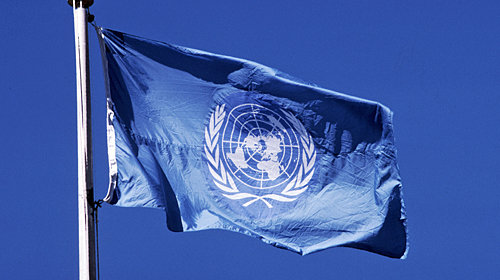
The U.S. Senate failed last week to act to protect the privacy rights of Americans when the USA Freedom Act was rejected, but today, the United Nations took another step towards recognizing privacy rights for everyone.
This afternoon, a committee of the U.N. General Assembly adopted by consensus a resolution urging all member states to take concrete action to better protect the human right to privacy in the digital age. It also called on the U.N. Human Rights Council to establish a special procedure to ensure that digital privacy continues to be a priority issue internationally; a crucial measure to ensure the proper development of the human right to privacy.
The resolution also identifies various surveillance practices, including mass spying, as particularly harmful to privacy and other human rights such as the right to freedom of expression. The resolution doesn't impose binding obligations, but it urges U.N. members to take steps to better respect and protect the human right to privacy. This includes ending practices that violate the right and reviewing existing laws and practices on the interception and collection of personal data.
The human right to privacy imposes important restrictions on surveillance, which is permissible only when undertaken pursuant to laws that are public, clear, and non-discriminatory. Surveillance must be employed only to further legitimate state objectives, such as law enforcement or national security, and it must also be proportionate to those ends. As the resolution also highlights, countries must put in place measures – including independent and effective judicial, administrative, and legislative oversight of surveillance operations – to prevent abusive practices and that provide effective remedies to victims when abuses occur.
As the ACLU and others have argued, U.S. surveillance practices fall far short of these exacting standards. If the United States is to remain "at the forefront of defending personal privacy and human dignity," it should heed the U.N.'s call to action and support the U.N. General Assembly’s request to the U.N. Human Rights Council to establish a special procedure on digital privacy. In particular, the U.S. government, should seek the appointment of an independent expert on privacy (a special rapporteur as they’re called at the U.N.) by the Council in March.
In an age of rapidly evolving technologies and potential harmful impacts on the human right to privacy, a special rapporteur will serve a vital role in promoting and protecting the privacy rights of everyone worldwide.
Learn more about human rights and other civil liberty issues: Sign up for breaking news alerts, follow us on Twitter, and like us on Facebook.

